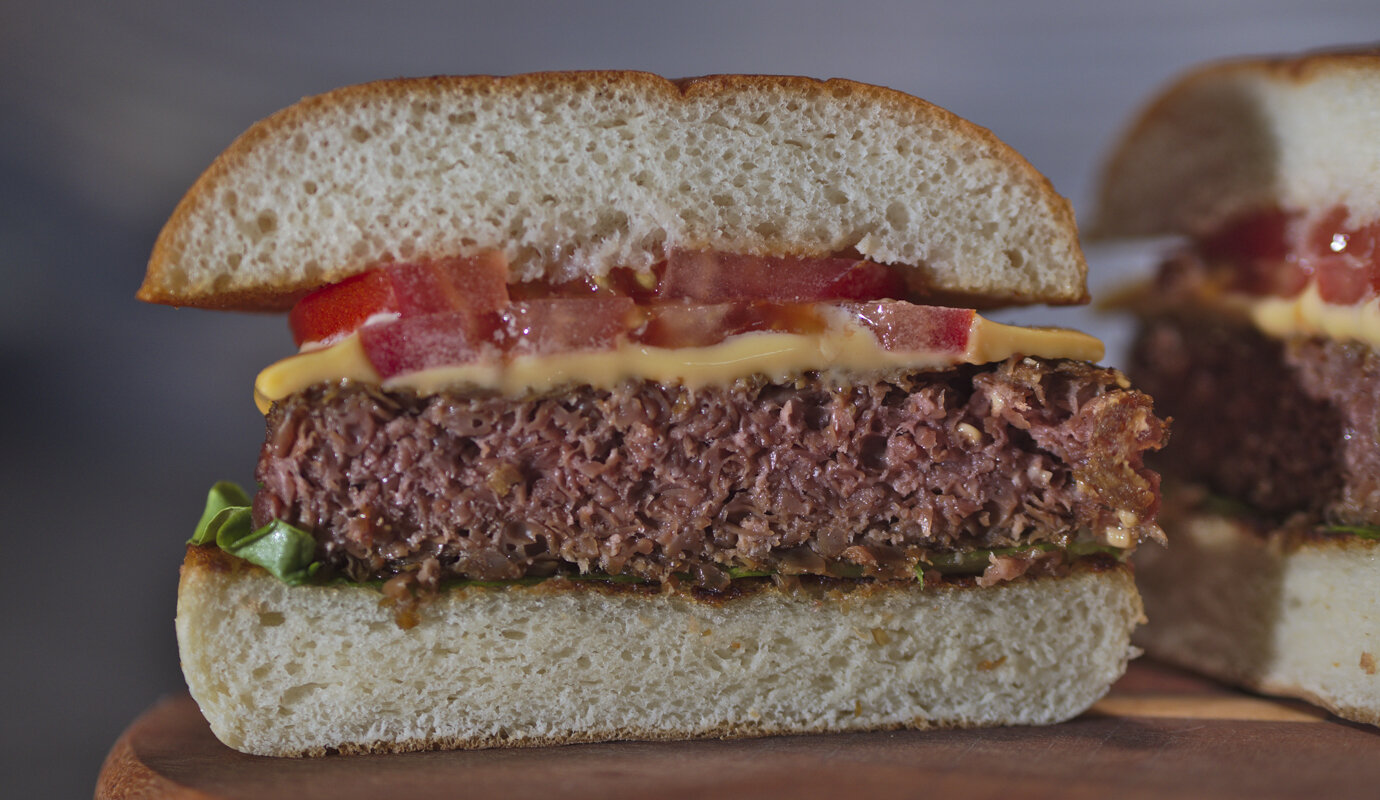Knowing that we all have a little bit more time at home, many among us are taking to the kitchen to up our culinary skills and creativity. While some are getting into baking, making more recipes from scratch, or just generally making more daily walks to the kitchen, underneath it all there's been a surge in the use of plant-based meats. More people are interested in, buying and cooking with meatless meat.
Meat alternatives aren't new, but the meatless meat products on the market today are different in one important way: An alternative meat, like a Beyond Meat burger or the Impossible Burger, is a product made from plants that is meant to taste like meat, be marketed to meat-eating customers, and replace some of those customers’ meat purchases. That’s what makes them different from veggie burgers, which have typically been aimed mostly at vegetarians. Another huge difference, is the fact that most of these companies have led with taste, making a push to rival the overall texture, taste and moistness of the real thing.
As consumer interest has grown, generating more publicity, which makes more consumers interested in these products. It’s a combination of increased consumer interest in healthier eating in general, and then combined with innovation and an explosion of more great-tasting meat alternatives for consumers to choose from.
What should I know from a nutritional standpoint?
Plant-based meat is absolutely safe — but it’s not a health food. While there’s a lot of uncertainty in nutrition science, and meatless meat may avoid the cancer risks of red meat, for the most part, it is probably about as good for you as the meat it’s imitating. Moreover, most meat alternatives attempt to imitate meat as closely as possible, including in macronutrient profile and calorie content.
There are considerable positive takeaways though. Beyond Meat says it sources all the building blocks of meat (protein, fat, minerals, carbs, and water) from plants. As for other highlights, the Beyond Burger packs in 30 percent of your daily iron quota and an impressive amount of phosphorus (which is found in your bones and teeth), along with some vitamin C. Most meatless meats are also soy-free and gluten-free which similarly have no known health impacts for the typical person but are priorities for health-conscious consumers.
The various plant-based meats on the market have similar nutritional values seen below. If you're feeling a little more health conscious these days, or have a need to experiment with your cuisine, maybe dipping your toes into meatless options is the direction for you.
Beyond Meat / Impossible Burger Nutritional Facts:
Calories: 270
Fat: 20 g (6 g sat fat)
Sodium: 380 mg
Carbohydrates: 5 grams
Fiber: 3 grams
Sugars: 0 grams
Protein: 20 grams





